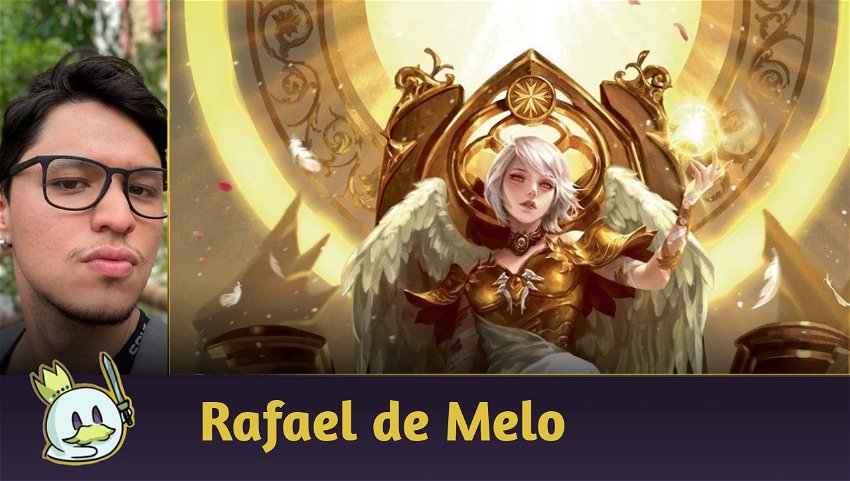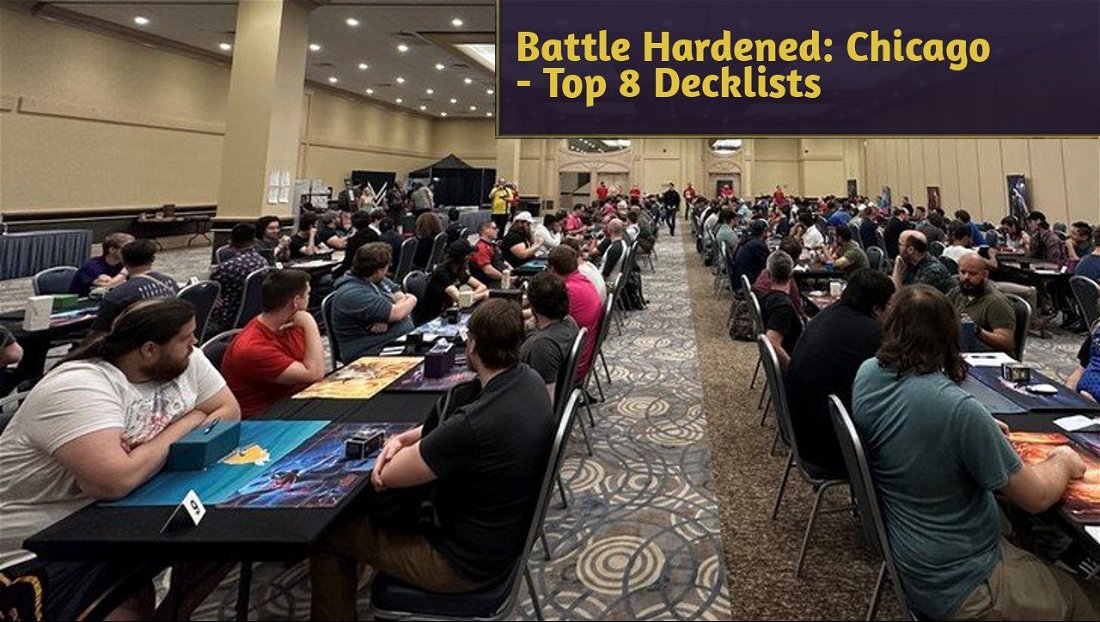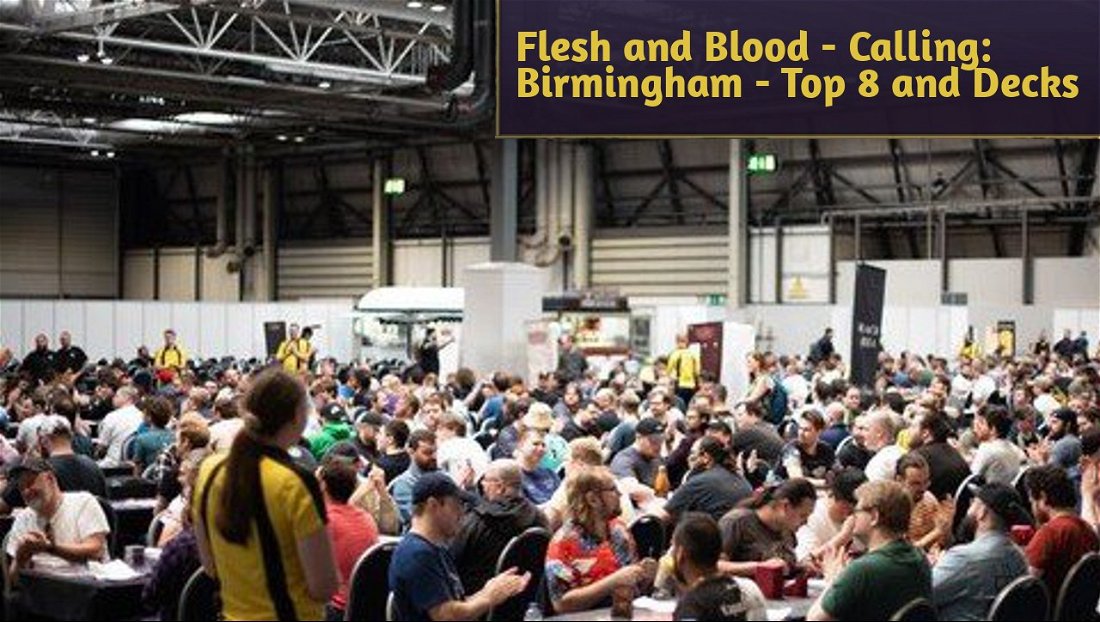Introduction
After much excitement and waiting, Dusk Till Dawn is among us, and we'll be able to enjoy the continuation of the war between Solana and Demonastery. Today, we'll discuss this set and take a look at what it promises us, and at what we can expect from now on.
A Different Booster Set
Dusk Till Dawn (DTD) is a booster set, which means, it wasn't intended to be played in Draft or Sealed, bringing more design freedom to the set, and also bringing a certain break in patterns.
While in previous set there was support for all classes, DTD brought a more exclusive support for the Monarch classes (Illusionist, Warrior, Runeblade and Brute) in their assigned talents (Light and Shadow), leaving the other ones aside.
Besides that, the set brings two new heroes, both for Classic Constructed and for Blitz of the types Light Illusionist and Shadow Runeblade, fulfilling the hole which existed in Classic Constructed after Prism, Sculptor of Arc Light and Chane, Bound by Shadow reach Living Legend status. We'll discuss them further on.
The set also has an unusual number of Legendary cards, with a total of eight of them across the full set.
Let's comment on each part of the set and on how it can affect the game.
The Light Side
Just like in Monarch, cards with the Light talent are used in Illusionist and Warrior classes, but some of them can be used by both.
In this set, there's not much to say about the "generic" Light cards; they do things identical to the Monarch ones. Some have additional effects if the opponent hero has the Shadow talent, others are attacks which grow with a certain condition, but two cards are eye-catching:

Lumina Lance transforms any Light attack into a better Enlightened Strike - once the choice of the three modes is possible. Though it is a bit expensive to get its full value, its yellow color helps the plans of the new Ser Boltyn, Breaker of Dawn archetype and the condition for Luminaris (in Blitz' case), which makes it an excellent aggressive card.
Another card really caught the eye of everyone in the community. When reading United We Stand, it is hard to understand what it really does and in fact is, as its mechanic doesn't work in no Flesh and Blood format which exists today. This card is a preview of the new game mode which is to come: PvE (Player vs Environment).
We won't talk about this mode here, but an addition of a card which only works in this new mode leaves us all wanting more.
Prism

One of the big highlights in this set is Prism, Awakener of Sol (and its Young version, Prism, Advent of Thrones) and its weapon Luminaris, Celestial Fury. Its return was very awaited-for, particularly for the orphans of Prism, Sculptor of Arc Light, but it returns a different card, and with entirely new mechanics.
The first perceptible change is its considerably lower life total. Usually, when a hero has a lower life total than the "standard" (40 points for the adult version and half of that for the Young version), that means that hero's mechanic breaks the standard of the other heroes' mechanics, and lowering its life total is one of the ways of balancing it.
Like, for instance, Iyslander, Stormbind can play in the opponent's turn, and Riptide, Lurker of the Deep can place cards in the arsenal without needing the bow or the end of the turn.
Prism, Awakener of Sol, then, creates angels to the likes of Dromai, Ash Artist with the dragons, but in a different way. Its mechanic works around a new type of card: Figments.

Figments are permanents (just like auras), and don't have any special ability when they are on board. All of them have an effect when they enter the board, cost four, are Instant and yellow, and their Legendary keyword only allows you to have one of each in your deck (being them eight in total in this set). However, this hero's ability allows us to transform these Figments into angels.

Angels are on the back side of the card, in which they are allies (just like dragons), have the ability of paying two resources to attack, when they attack each have their own effect, have four power, four health and Ward 4 ability - so if the hero was to take any sort of damage, instead, an angel on board is destroyed to prevent four of this damage.
Despite being its main mechanic, there is a support so that everything fits in. Many cards with the name "Herald" were reprinted from Monarch; the new equipment Empyrean Rapture allows us to transform Figments "for free"; and the new weapon allows us to give Go Again to a Herald or angel. Continuing with this logic of attacking with a Herald (which, when they deal damage, go for the soul) give it Go Again, tutor a Figment, transform a Figment and attack with the angel. It may seem a weak strategy, but the many Monarch cards can help this deck become viable.

Besides that, other new cards help this strategy. Angelic Descent (1) and Angelic Wrath (1) allow you to grow the power of a Herald, meanwhile Celestial Reprimand (1) lowers the power of a blocker - allowing cards which destroy attacks with Phantasm to get a power lower than six, not destroying anything anymore.
Boltyn Support

Another class that was really in need of support was Ser Boltyn, Breaker of Dawn. The current deck has a problem of being extremely focused on its Lumina Ascension combo, making the strategy relatively weak when compared to the other decks in the format, but the new set brings us new cards which turn this hero a bit more towards damage exchange.

The first big highlight for the hero are its cards with the new Solflare ability. When a card with this ability is used to give the hero Charge, a bonus effect happens - rewarding its use this way instead of only "losing" one card in your hand.
And the bonus effects are the most diverse: from creating tokens to gaining one health point.

Another new thing is the importance yellow cards gain in the deck. Now, many cards check if any yellow cards were used to give Charge and this way grant you a bonus effect - creating synergy with Solflare cards.
And, finally, new equipment fits in well with its strategy: Soulbound Resolve is a great way of defending yourself better and Irosong Versus grows the power of your weapon's next attack.
And in a broad sense, the set gives this hero tools to go out of its combo-focused strategy to go into a strategy which focuses on trading resources in the early-mid game so that it can, this way, finish matches with its classic combo.
The Shadow Side
In the set's other aspect, the Shadow talent is used in the Runeblade and Brute classes to go against the Light side. The set has also brought punctual cards to fight heroes with the Light talent, but some highlights have definitely shone through.

Tear Through the Portal (1) offers cadence to its respective card with the banished zone, something very welcomed by any hero with this talent, meanwhile Chains of Mephetis can ruin the plans of those who draw multiple cards in a turn - particularly Lexi, Livewire in its Three of a Kind turn. A very good card for the current meta.
Vynnset

Here we didn't have the return of a new Chane, Bound by Shadow, but instead an entirely new hero with new mechanics.
Vynnset, Iron Maiden (and its Young version Vynnset) still uses the banished zone to play its main cards, just like the old Runeblade, but she is the first hero in the format to use its health total as a resource, making clear the strategy of exchanging life for advantage, as it is well-shown in her weapon, Flail of Agony.

A new mechanic appears: Rune Gate. The ability allows us to play Rune Gate cards "for free" from the banished zone.
As the heroine herself exiles a card from hand, it is possible to have a better control regarding which cards will be in that zone and perform an attack coming from there, besides breaking all the Runechants in the process. Many of these attacks have a disruptive attack in case the hero loses health at the end of the combat chain (not necessarily by attack damage). These effects can be exiling a card from hand, from the banished zone or make the heroine gain some life points.
The idea of this hero is to build something with Runechant (and many other past sets bring support for that), exile a great attack and play it in your turn, breaking all the tokens. Unlike all other Runeblades, Vynnset, Iron Maiden, tries to go more for a Go-Tall strategy than perform many attacks in one turn.
Support for Levia
Besides support to Warrior, another hero that wanted some support for herself was Levia, Shadowborn Abomination. The deck was a ticking clock-bomb, in which occasionally the hero killed herself due to the Blood Debt effect of her cards - making her one of the worst heroes in the game. However, the set brings some ways of resolving the issues with her.

One of the changes is attacks which banish cards from hand instead of from the graveyard. This single difference allows activating this hero's abilities in a more consistent way, without depending on cards in the graveyard, however, there is still a problem with the end of the game, in which blocking becomes more and more essential, and for that, a new type of card appears.

Levia, Redeemed and Blasmophet, Levia Consumed (front and back of the same card) caught everyone by surprise and left the community excited. The new type of card, Demi-Hero, stays in your arsenal and the hero transforms into it, if the condition for that to happen is met.
When transformed, now your hero has intellect and life equal to what's shown in the Demi-Hero and its effect starts. It's not the case here to explain what's the best use for it, but the fact is that both options "turn off" the Blood Debt from cards in the banished zone, also "turning off" the deck's "ticking-bomb" and the hero therefore has more time to play in the mid-late game.
Besides that, the new equipment Scowling Flesh Bag helps the hero hold off damage from the opponent and is excellent against aggressive decks, and has already been called by many as one of the best equipment in the game.
Other Cards and Reprints
The set didn't bring an expressive number of generic cards and only brought one reprint; however, some deserve attention.
Briar, Oldhim, Lexi, Bravo, Dorinthea and Shiyana, Diamond Gemini got new specializations. All of them have a desirable effect on their respective hero, however, all have in common a new mechanic called Unity, in which, if the card with Unity is used to defend alongside another card, the hero gets a token which can help their strategy.
Besides them, some more punctual cards have come out to add other strategies outside the heroes in the set, with a highlight to Lost in Thought, Bequest the Vast Beyond and Dig Up Dinner.
Unfortunately, the set didn't have many reprints, but the great reprint of Crown of Providence was extremely sought-after by the community and is very welcomed. This equipment, besides being one of the best head equipments that there is in the game, was reaching extremely high prices in the market, both due to its presence in competitive decks and due to its rarity. It is one of the best reprints in the last sets.
And, as quoted, many Heralds were also reprinted, them being:
Herald of Judgment, Herald of Protection (1), Herald of Ravages (1), Herald of Rebirth (1), Herald of Tenacity (1), Herald of Triumph (1) and Wartune Herald (1).
Final Words
DTD was very awaited-for by players, and the set arrives just in time for significant changes for the meta in which Oldhim, Grandfather of Eternity reached Living Legend status and Bull's Eye Bracers was banned. And, in these uncertain times, only time will tell how good will the new heroes be, and if Levia and Boltyn will truly be competitive now.
And what did you think of the new set? Thank you for reading and see you next time!














— تعليقات 0
, ردود الفعل 1
كن أول من يعلق